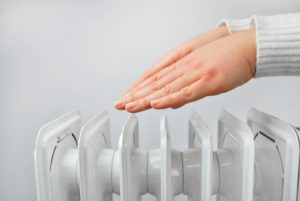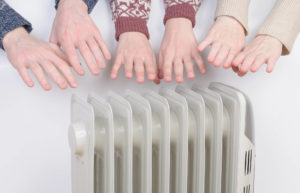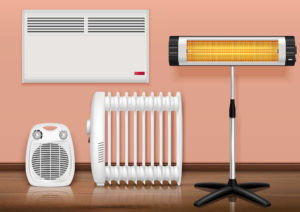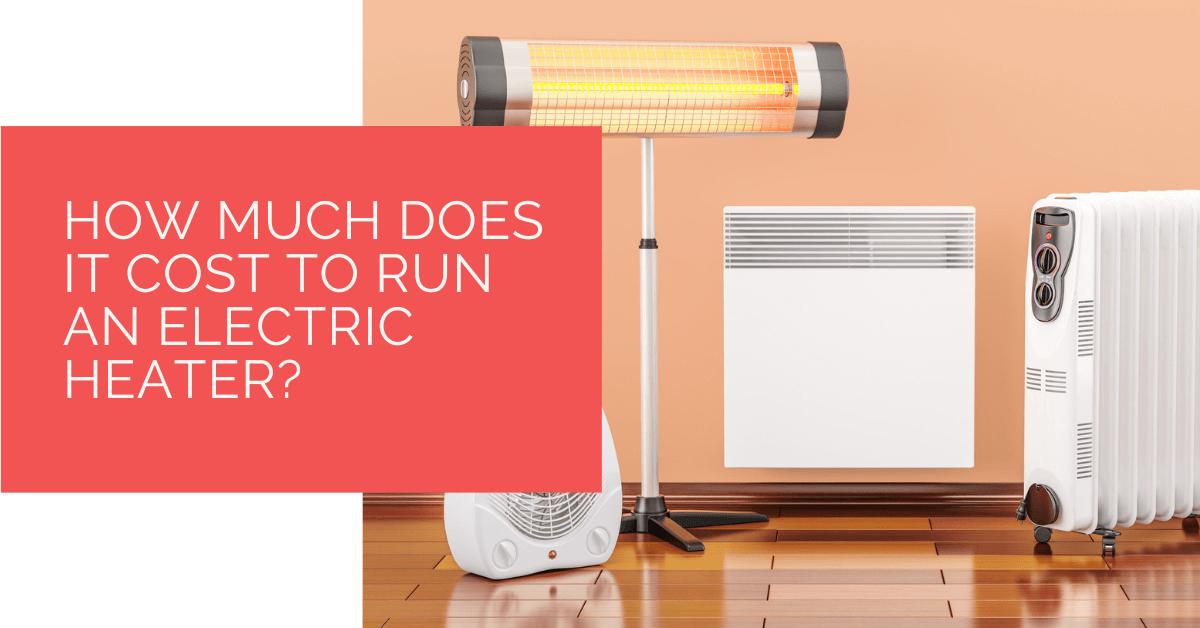Efficiently heating your living space while managing your energy costs is a concern many homeowners share. When the cold weather arrives, electric heaters are often used to provide warmth and comfort. However, it’s important to understand the actual cost of operating an electric heater to make informed decisions about how to heat your home. In this article, we will explore how to calculate the running costs of electric heaters and provide valuable tips to help you reduce your heating expenses. Whether you’re considering switching to electric heating or looking for ways to optimise your current system, we invite you to join us to discover the secrets of managing your electric heating costs.
Contents
- 1 Key Takeaways
- 2 How to Calculate the Running Costs of an Electric Heater
- 3 Benefits of Electric Heating
- 4 Installation Costs of an Electric Heater
- 5 Tips to Reduce the Cost of Running Electric Heaters
- 6 Common Electric Heating Devices
- 7 Energy-Saving Features to Look out for While Buying an Electric Heater
- 8 Electric Heating Devices to Reduce Costs
- 9 Heat Pump Source: Reliable Heating and Cooling Solutions
- 10 Wrapping it Up
Key Takeaways
- Running an electric heater’s cost is calculated using a formula involving power, hours of use, and the cost per kilowatt-hour. Still, it provides only an approximate cost due to external factors.
- Electric heating systems offer lower installation costs, safety, high efficiency, environmental friendliness, and long-term value compared to traditional gas heating systems.
- To reduce the cost of running electric heaters, consider insulation, thermostat adjustments, switching providers, choosing the right-sized heater, and understanding various types of electric heating devices and their energy-saving features.
How to Calculate the Running Costs of an Electric Heater
The running costs of an electric heater are calculated using a simple equation:
Power (in Kilowatt) x Hours of use x Pence per kWh
However, it is vital to note that this equation can give us only an approximate cost. It does not take into consideration any external factors affecting the cost.
Before calculating the approximate cost, convert the wattage of the electric heater into Kilowatts by simply dividing it by 1000. For instance, a 2000W electric heater is essentially a 2kW heater.
As per the Energy Savings Trust, take an example price per pence/kWh of 20.33p.
In this example, let us assume that the average rate of a single unit of energy is 20p (rounded off to the nearest whole number).
The electric heater is 2kW and is run for approximately 2 hours. Multiplying these two gives us the daily cost of 80p per day.
To calculate the cost per month, multiply it by 30 (average number of days in a month). You get £24.
To calculate the cost per year, multiply it by 365 (number of days in a year). The annual cost comes up to £292 pounds a year.
Here is a table of approximate costs of running heaters with varied powers. Note that the rate of energy of a single unit is assumed to be 20p. The number of hours a heater is used in a day is assumed to be 6 hours.
| Power Rating of Electric Heater | Cost Per Hour (In Pence) | Cost Per Day (In Pounds) | Cost Per Month (In Pounds) |
|---|---|---|---|
| 500 Watts or 0.5kW | 10p | £0.60 | £18.00 |
| 1000 Watts or 1kW | 20p | £1.20 | £36.00 |
| 1200 Watts or 1.2kW | 24p | £1.44 | £43.20 |
| 1500 Watts or 1.5kW | 30p | £1.80 | £54.00 |
| 2000 Watts or 2kW | 40p | £2.40 | £72.00 |
| 2500 Watts or 2.5kW | 50p | £3.00 | £90.00 |
| 3000 Watts or 3kW | 60p | £3.60 | £108.00 |

Benefits of Electric Heating
Installation
Installation of a traditional gas heating system is costlier than that of an electric heating system. The latter does not require the hardware used in a gas heating system. The hardware may include flues, pipes, vents, ducts, and more.
An electric heating system requires minimal planning. Consequently, it does not disrupt the existing structure regardless of the building design and layout. All it requires is an electrical circuit connection to be installed in any location within the house. The installation process is also relatively quick and time-saving.
Safety
Traditional heating sources carry their own risks that are mostly absent in electric heating. Since the traditional systems use fuel to generate heat, they release carbon monoxide in the process. Thus, they create a risk of poisoning due to carbon monoxide and even explosions.
Running water in the boiler and pipes in gas heating systems is usually noisy. Electric heaters and boilers do not function using running water, thus eliminating the risk of pipe bursts and leaks as well.
Since electric heating systems run without water, there occurs no accumulation of limescale or sludge. Such build-up would otherwise have to be flushed out using a powerful flushing service.
Efficiency
The most significant benefit of an electric heating system is that it provides as much heat as the electricity you have paid for. There is no loss in the heating process. The traditional system, on the other hand, involves a loss of heat during transmission through the flues.
Another great way to improve the efficiency of an electric system is to connect it with solar panels. If the system is powered by electricity generated by solar panels, it can greatly reduce your power bills. Besides lowering your electric bills, it also reduces harmful carbon dioxide emissions.
Environment
Burning fossil fuels is an evident source of greenhouse gas emissions in the UK. Traditional heating systems emit these gases in large quantities creating a long-lasting damaging impact on the climate.
On the other hand, electricity releases no harmful gases, making it a clean source of heating. Electric heating systems comply with the new Lot20 regulations.
Value
Installation of electric heating systems are cheaper than that of gas heating systems. Since the latter is run by burning fossil fuels, the resource is expected to deplete as well, thus further increasing the costs.
In a bid to promote less dependence on fossil fuels, the government is reducing the cost of electricity. Moreover, electric systems require minimum maintenance, while gas systems are more vulnerable to breakdowns. Gas systems require annual servicing, but electric heating systems don’t.
Finally, electric systems are 100% efficient. If you use 500kW of electricity, you will get heat worth 500kW of electricity.

Installation Costs of an Electric Heater
Once you decide to switch from a traditional heating system to an electric heating system, first consider the installation cost.
This cost is dependent on the size of the household and the number of thermostats and radiators required to heat it. This implies that the installation cost will vary for each home.
Get a quote from the electric heater companies of your preference before you make the final call. Compare the prices of these competitors to get the best deal for your home.
Tips to Reduce the Cost of Running Electric Heaters
Insulation
More than half of the energy is used for heating rooms. Loss of heat in the process accounts for the high electricity bills. To maintain the temperature indoors, make sure to insulate the rooms well to reduce the load on energy consumption.
Well-insulated rooms imply that the rooms are draught-proof, and cold air does not get in through any gaps in the doors and windows. Double glazing the windows is an effective way to support insulation.
For maximum heating, insulating the walls and floor is also an option since it reduces the frequency of using the heating system.
Thermostat
The most economical and basic action you must take is turning down the thermostat by as little as 1 degree. This small move can impact your electricity bills by almost 10%. Using a thermostat ensures that heat is generated only when the need arises and does not get wasted otherwise.
Setting a timer on the heating also makes an impact. Turning it off when you go out and then turning it on only when you get back can help make a small but considerable impact on bills.
Switch Provider
Most companies’ energy tariffs vary. Compare the tariffs of various suppliers and calculate how much you could save if you switch to a company with a better deal.
Collect quotes from multiple suppliers as early as today to help you save hundreds of pounds on your energy bills.
Install the Right Heater
Select an electric heater based on the size of your room for optimal heating and maximum efficiency. If you opt for a small heater compared to a large room, the load on it will be higher. A high load on a heater will waste energy and money.
If rooms have high ceilings or are open-plan rooms, the radiator will have to work on a higher setting to heat the room.
Tip: To ensure that the room is adequately heated, ensure that the heater is slightly bigger than the required size.
Common Electric Heating Devices

Not all electric heating devices have the same energy efficiency and output. For better understanding, here are different types of electric heaters commonly used:
Oil-filled Radiators
Oil-filled radiators generate heat when a component that is submerged in a fluid is heated. When it warms up, it circles around the radiator. These radiators usually generate power up to 2500 Watts. The most notable factor of these is that they continue to radiate heat even after they are switched off.
Fan Heaters
These portable heaters are quick in heating a room. They function through electricity running through a coil that heats them and then draws air above them. The power output of a fan heater ideally ranges between 500 Watts and 3000 Watts.
Tip: Opt for a heater with a ceramic plate around the heating element since it is far more efficient.
Convector Heaters
Convector heaters are similar to fan heaters except that they are larger and resemble radiators. Some come with the option of controlling the speed of heat distribution, and almost all of these are silent. The heat output ranges between 2000 Watts and 3000 Watts.
Energy-Saving Features to Look out for While Buying an Electric Heater
Although electric heaters are cheaper than gas heaters during installation, they might be expensive in the long run. Thus, necessitating to ensure that they are efficient.
Variable Heat
On days with relatively less cold weather, you should have the option to set the heater to a lower output level.
Timer
A timer will allow you to turn on the heater in advance before you get home. It also allows you to turn the heater off as and when required. Besides this, you can set it at a lower output for a longer duration to save on energy bills.
Climate Control
This feature allows the heaters to maintain a specific temperature when it is reached. This helps maintain an optimum temperature in the room and eliminates the need to switch on and switch off the heater constantly.
Electric Heating Devices to Reduce Costs
There is a range of electric heating devices that can help cut heating costs.
Night Storage Heaters
Systems that make use of night storage heaters are a good investment. The functioning is quite simple – the heat retaining ceramic plate around the heating element remains warm, thus keeping the home warm. They can retain heat for up to 24 hours and can be reheated for further use.
Storage Heaters and Electric Radiators
Most modern electric heaters now consist of timers, fans, thermostats, and temperature controllers. This enables better control over power usage when compared to older models. Some new models also have a remote Wi-Fi control that notifies you when excess heat is being lost.
Meters
Installing smart meters will enable you to pay less for electricity used at certain times of the day. Some providers also offer special cheaper tariffs for better cost management.
Heat Pump Source: Reliable Heating and Cooling Solutions
At Heat Pump Source, we take pride in our unwavering commitment to serving the UK with top-tier HVAC solutions. From the efficiency of heat pumps and the cool relief of air conditioning to the warmth of boilers, radiators, and underfloor heating, our dedicated team is always at the forefront of innovation. We understand the unique needs of every household and business, and we strive to provide dependable health and cooling products and services that are tailored just for you. Ensuring your comfort and satisfaction is our utmost priority. Whether you have questions, need guidance, or require support, we’re always here to assist. Please don’t hesitate to contact us; we’re eager to be of service.
Wrapping it Up
Traditional gas heating systems require frequent maintenance for better performance. Comparatively, electric heating systems are reliable as they rarely need maintenance. They are more durable than gas boilers and reduce replacement costs while saving money in the long term.
About the Author
At Heat Pump Source, our articles are the product of a collaborative effort among a team of highly skilled HVAC experts. Our dedicated professionals, hailing from diverse backgrounds in heating, ventilation, air conditioning, and refrigeration, contribute their extensive knowledge and experience to every piece of content. This multidisciplinary approach ensures comprehensive coverage. Our commitment is to deliver authoritative, reliable, and tailored advice to meet the unique needs of every household and business across the UK.

